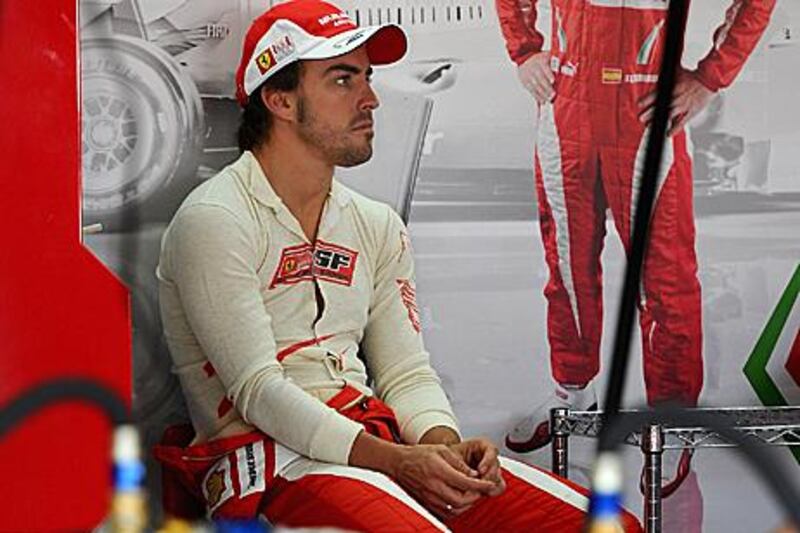Webber, Vettel and Hamilton have to rely on title rivals slipping up at Yas. Alonso does not. Graham Caygill details the permutations.
Formula One goes into uncharted territory this weekend: for the first time, the season championship will be contested by four drivers in the final race.
Fernando Alonso, Mark Webber, Sebastian Vettel and Lewis Hamilton all have a chance of being crowned champion at Yas Marina Circuit after Sunday's 55-lap race.
For some of the drivers, the title-winning scenario is relatively straightforward. For others it is rather more complex.
Alonso (246 points)
The double world champion is the only one of the four championship contenders who is in control of his own destiny.
If the Ferrari driver finishes first or second he is guaranteed the title regardless of what his rivals do.
Even if he does not win, if he finishes ahead of Webber and Vettel and is in the top 10, he will still be the champion.
Even if he fails to place in the top 10 he can still be the champion as long as Webber does not finish in the top five, Vettel fails to finish in the top three, and Hamilton does not win the race.
Permutations
1st or 2nd - Champion.
3rd or 4th - Champion if Webber finishes second or lower.
5th or 6th - Champion if Webber third or lower and Vettel is second or lower.
7th or 8th - Champion if Webber fourth or lower and Vettel is second or lower.
9th - Champion if Webber is fifth or lower and Vettel third or lower.
10th - Champion if Webber sixth or lower and Vettel is third or lower.
Does not score - Champion if Webber sixth or lower and Vettel fourth or lower and Hamilton second or lower.
Webber (238 points)
He must finish at least fifth to have a chance of being Australia's first world champion since 1980.
Winning the race is not enough for the Red Bull-Renault driver, though; if he is first and Alonso finishes second, then the Ferrari man will take the title by a solitary point.
Webber needs to win and have at least one driver finish between him and Alonso.
He needs to make up eight points on Alonso, so if he is second, it would be enough as long as Alonso was no better than sixth and his teammate Vettel is not the race winner.
Permutations
1st - Champion if Alonso third or lower.
2nd - Champion if Alonso sixth or lower and Vettel second or lower.
3rd - Champion if Alonso seventh or lower and Vettel second or lower.
4th - Champion if Alonso ninth or lower and Vettel second or lower.
5th - Champion if Alonso 10th or lower and Vettel third or lower.
Vettel (231 points)
The German must finish at least second if he is to become the sport's youngest champion at the age of 23. As with Webber, he is reliant on other cars helping him. If Alonso finishes in the top four then Vettel cannot be champion regardless of what he does.
Vettel, the 2009 Abu Dhabi Grand Prix winner, would finish tied on 256 points if he wins the race and Alonso is fifth - but would take the title by virtue of having more fourth-place finishes.
Equally, if he wins and Webber is second, he will leapfrog Webber in the standings, despite both men ending up on the same points thanks to having more race victories in 2010 to his name.
Permutations
1st - Champion if Alonso fifth or lower.
2nd - Champion if Alonso ninth or lower and Webber fifth or lower.
Hamilton (222 points)
There is only one scenario that will see the Briton become champion for a second time. He has to win, as he trails by 24 points with only a maximum of 25 left to be gained.
But winning will not be enough - even if Alonso were to finish 10th, the single point would give the Spaniard the title.
Permutation
1st - Champion if Alonso does not score in the race, Webber is sixth or lower and Vettel is fourth or lower.





